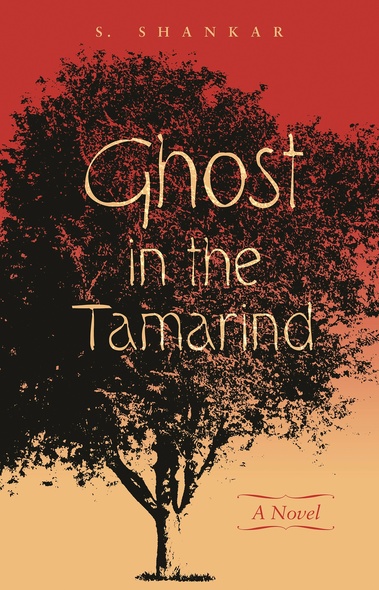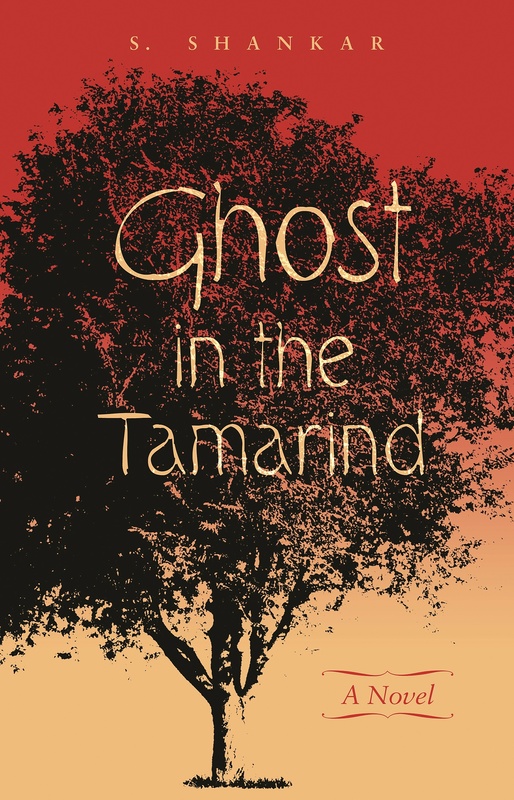
Who can you love? What do you owe to love and what to the world at large?
Such are the questions that drive the story of Ramu, a Brahmin man, and Ponni, a woman of the Dalit “untouchable” caste. Set against the backdrop of twentieth-century South India, the novel takes readers from the 1890s village where Ramu’s grandmother grew up to the Emergency years of 1970s Madras. Against this sweeping canvas unfolds the drama of Ramu and Ponni’s forbidden love, inescapably intertwined with the great struggle against caste oppression. Caught up in the entanglements of love and politics, the couple risk everything to fight for a better society. Will they succeed?
Steeped in history, this memorable inter-caste love story shows ordinary people moved to uncommon courage in their desire to make a difference in a ruthless world.
Spanning from the late nineteenth century to the 1970s, S. Shankar’s Ghost in the Tamarind presents a portrait of a changing India, with the country’s fight for independence and abolishment of the caste system at the novel’s core. The narrative is rich with memorable characters and moments, along with a beautiful, sensual flow of language.
Subversions, transgressions, and transcending boundaries are at the center of Ghost in the Tamarind, and Ramu, a Brahmin with a revolutionary heart, is a fitting protagonist. One of the novel’s many pleasures is its seamless weaving of historical contexts, all the more impressive for its range, from the nineteenth century to the 1970s.
Shankar’s gift as a novelist is the depiction of complex and nuanced characters. From Gomati Paati whose courage and wisdom shape Ramu’s life to Chellappa, the radical, and Ponni, the fiery activist, each character is brilliantly depicted. The novelist’s attention to place, his close descriptions of landscapes, and his careful mapping of cities like Madras and Calcutta, bring this narrative to life. Gomati Paati and Ponni are probably some of the best female characters depicted in contemporary Indian fiction—strong, complicated, and passionate, and in charge of their destinies. . . . Ghost in the Tamarind is a novel that must be read not just for its historical sweep but also for the power of storytelling.
S. Shankar captures well the rigidity of caste hierarchy in the countryside. . . . [T]his novel of forbidden love is well-crafted. It is also timeless.
S. Shankar has created an ambitious and moving novel that traverses several crucial eras in India’s history. He has masterfully woven into it the lives of Ramu and Ponni, the heroic yet very human lovers who struggle against the bonds of colonialism as well as the prejudices within their own communities that threaten to destroy them.
S. Shankar’s Ghost in the Tamarind is an impressive achievement—a conscientiously woven narrative that concurrently takes into account two inviolable principles and attempts to find a balance in between: the truth as well as the invasive and often violent finitude of perspective. If the answers to history’s problems always arrive too late, a phrase I borrow from the novel, how should the history of the present be narrated in the agonizing interregnum between an unbearable present and an inconceivable salvific future? Relying on history not just as back drop but as its very backbone, Shankar’s novel creates a credible world whose realism is critically mimetic of its own conditions of possibility.
[I]n its representations of cross-caste romance, its evocation of rural India from the twenties to the seventies, and its treatment of an important if lesser-known social movement, Shankar’s ambitious novel draws us into a rich and interesting world, and leads us through his characters’ intense emotional journey.
The narrative is memorable with every character forming budding attachments with the reader. It is a novel that ignites the soul with sensory language and captivating moments. . . . Controversial, hauntingly beautiful and gripping, it is a novel one must not hesitate to dive into headfirst.
S. Shankar, a novelist, critic, and translator, teaches at the University of Hawai`i at Mānoa, where he is a professor of English.




